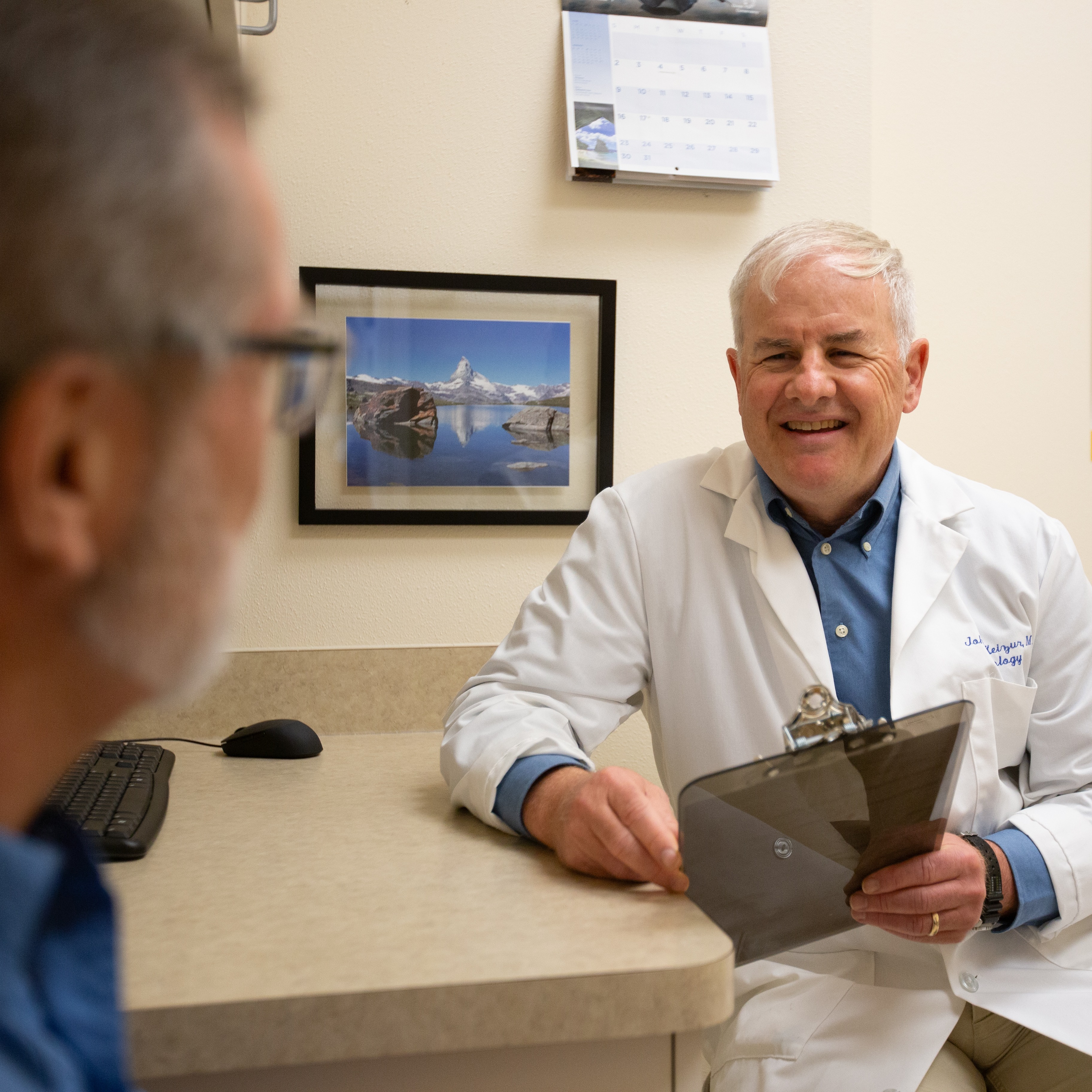Men: Have You Undergone Your PSA?
We all live busy lives, and sometimes we push tasks to the back burner. But, one’s health should never take the hit. Men of a certain age should undergo a PSA (prostate-specific antigen) test in order to keep their prostate health in check.
Dr. John Keizur, board-certified urologist at Palouse Urology Center in Pullman, Washington, offers important information for men to know.
What Does a PSA Involve?
In men who have prostate cancer, the PSA test is generally elevated. PSA levels do rise naturally as men age, so it’s not always a concerning issue. Even if a PSA is at a cancer-indicating level, it could be a non-cancerous condition such as benign prostatic hyperplasia (BPH) or an infection.
One element that makes the PSA an “easy” test is that it’s really just a blood test. “You don't have to have an empty stomach. You don't have to do anything in preparation. We do recommend it is done prior to any kind of prostate manipulation or prostate irritation to get a good baseline, but it's just a simple blood test,” states Dr. Keizur.
Experts recommend that men who are in good or stable health get a PSA starting at age 50 and continuing until at least age 70. Some men who are in exceptional health at age 70 (or older) should continue with screening. Men who have a strong family history of prostate cancer, or who are of African American descent, should start screening at age 40.
“Most urologists will also look at health of the patient. So, I would say anybody who has a reasonable 10-year life expectancy, it is then reasonable to get screened,” explains Dr. Keizur. “I have a lot of men who are older than 70 who are in very good health and we still recommend to continue screening.”
Why Is PSA Screening So Important?
Prostate cancer is the leading cancer in men, and it's the second leading cause of cancer death in men. Unfortunately, the myth that prostate cancer is insignificant and “nothing to worry about” leads some men to avoid screening. While it is true that a low-grade cancer may be eligible for a careful monitoring approach, a high-grade cancer absolutely needs to be addressed sooner rather than later.
“It is something you want to catch early versus late, because we have lots of treatments to take care of the cancer when it's early stage. There is no cure for prostate cancer in later stages at this point,” cautions Dr. Keizur.
Should a cancer diagnosis be made, next steps involve speaking with your doctor about treatment options. As mentioned, some men may not have to have any sort of immediate treatment. Others will need to have surgery, radiation therapy, chemotherapy, or another advanced treatment option.
Take Your Prostate Health Seriously
There was a time when the U.S. Preventative Task Force decided to recommend against screening, which spurred many providers to cease PSA tests. Several years after, data revealed that rates of prostate cancer had increased.
“The family practice group has reversed a bit, and now they're saying PSA is indicated after a discussion with the patient, which I think is reasonable,” shares Dr. Keizur. “Even though there have been some studies that have not absolutely proven screening lowers death rates, it does clearly lower metastatic prostate cancer.”
Dr. Keizur holds a free screening clinic every September. To learn more about Palouse Urology, call (509) 332-3499 or visit online.
